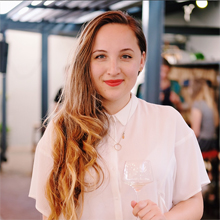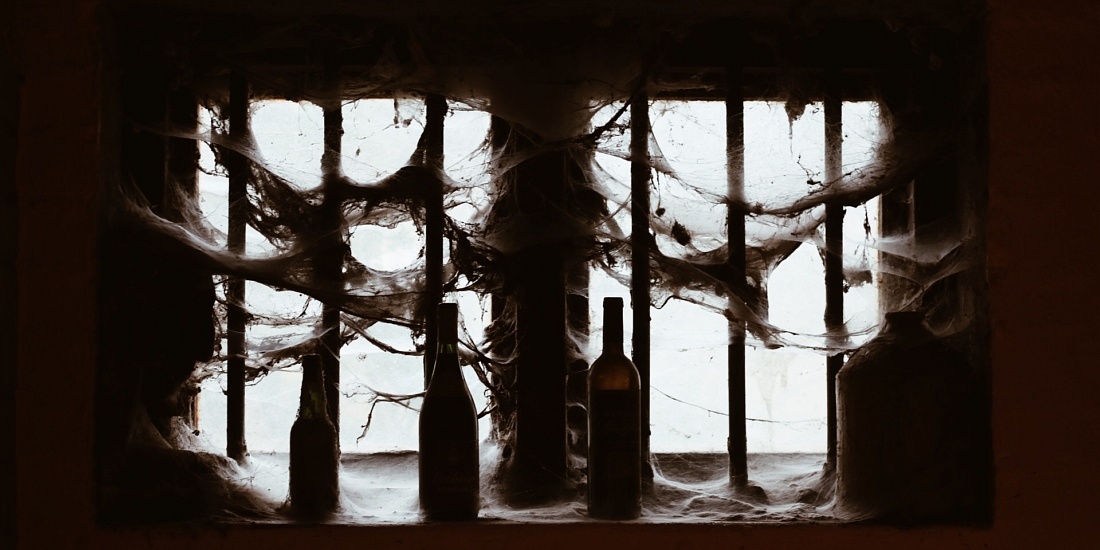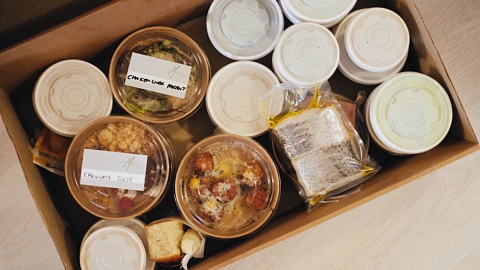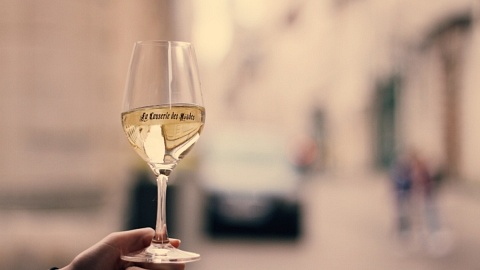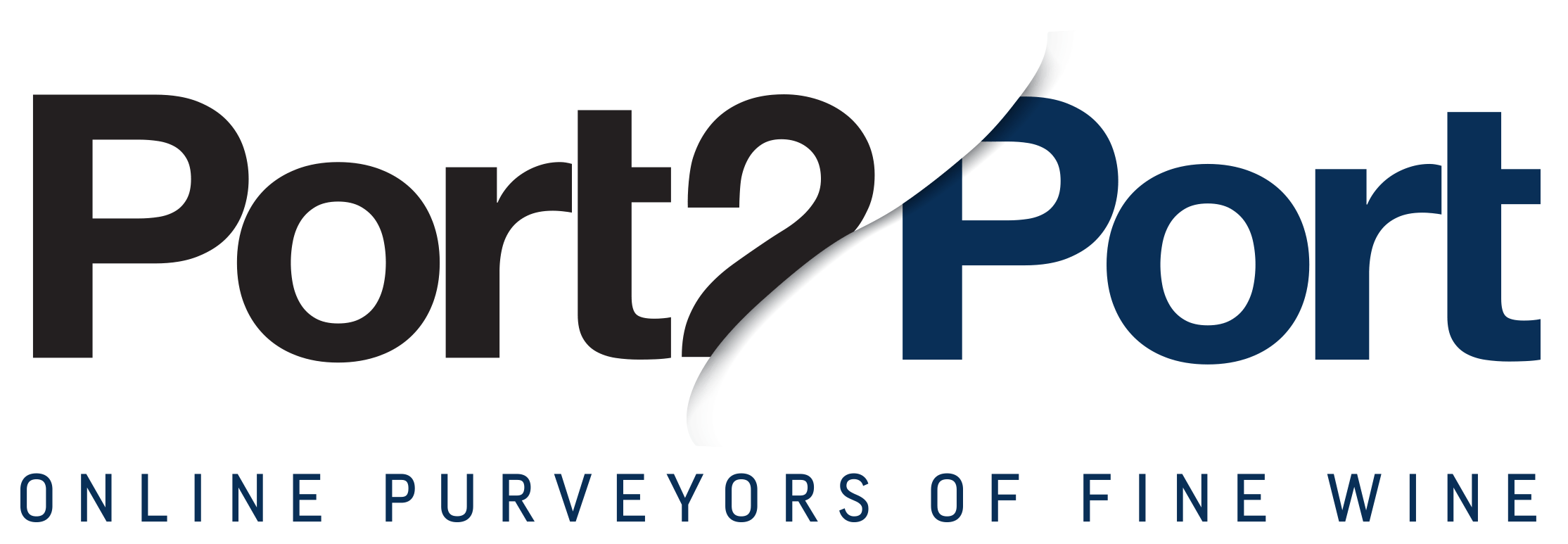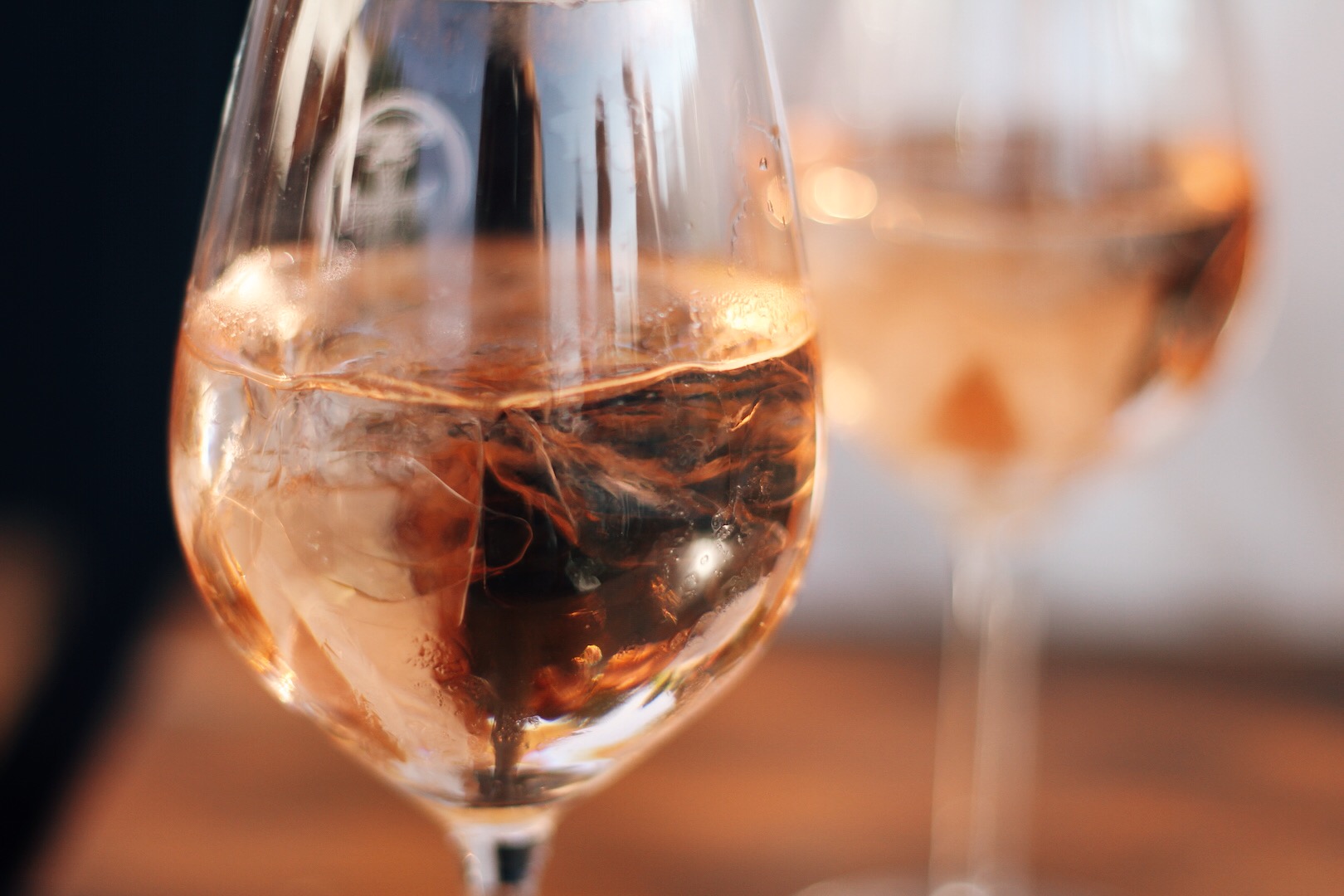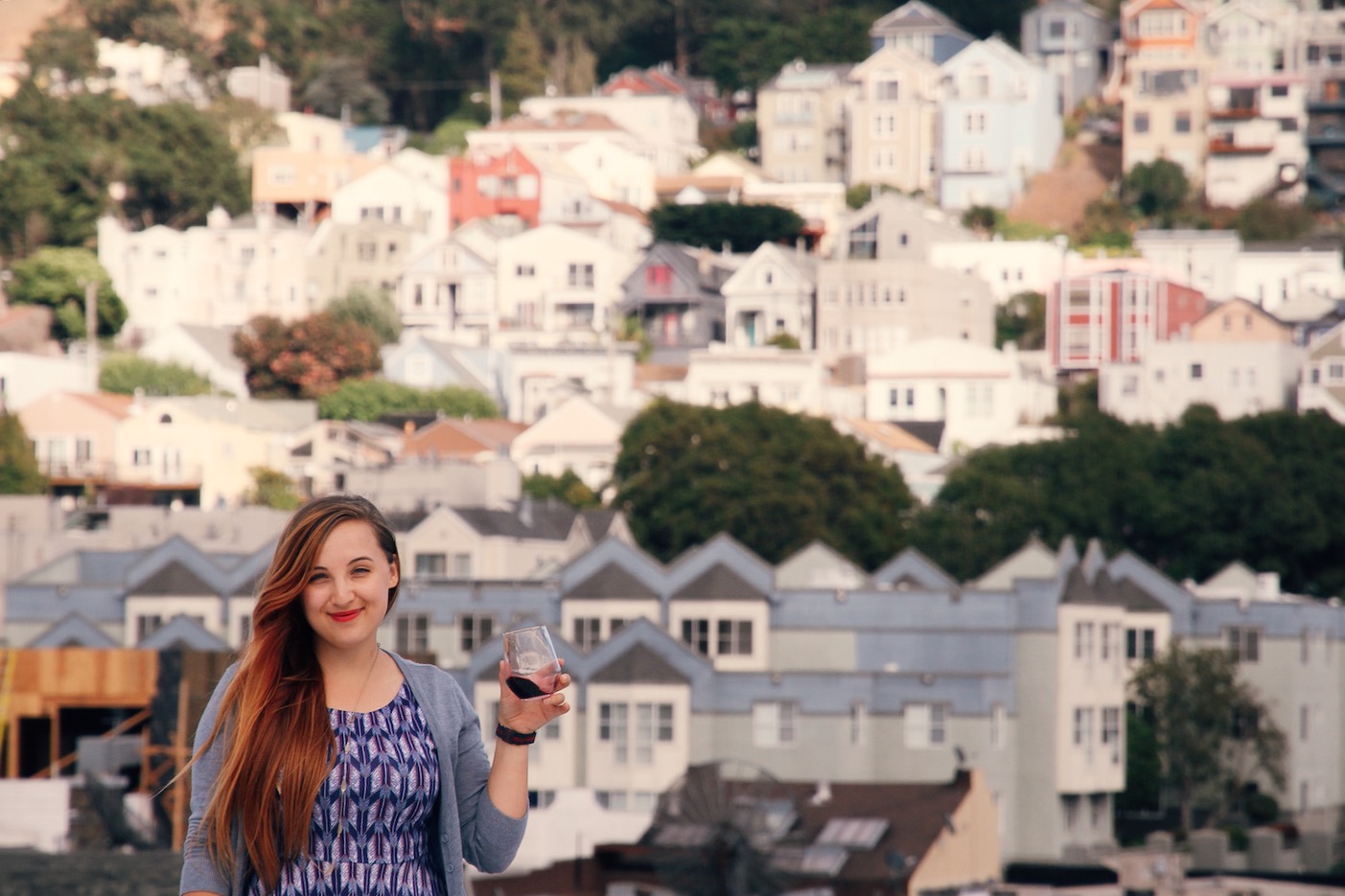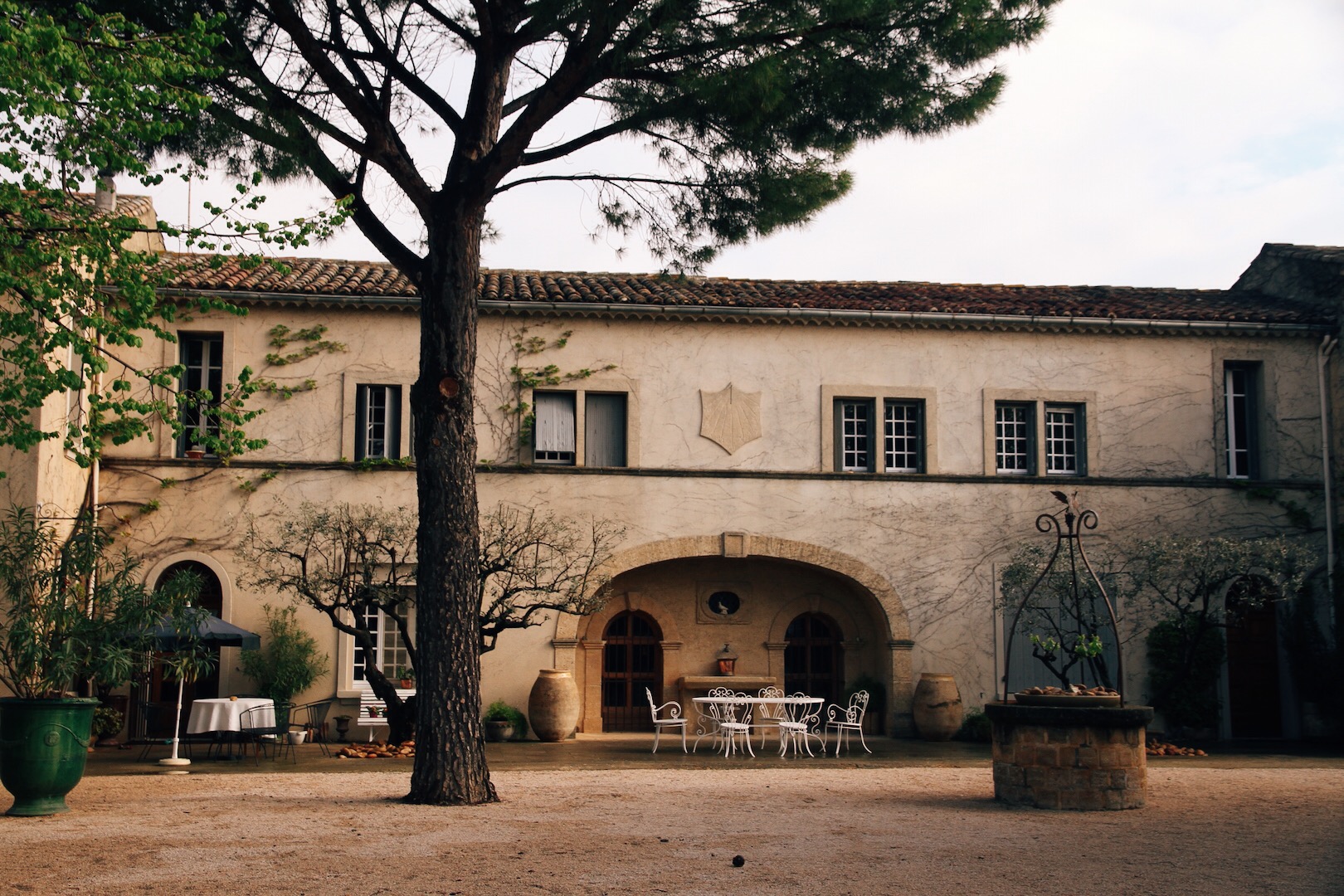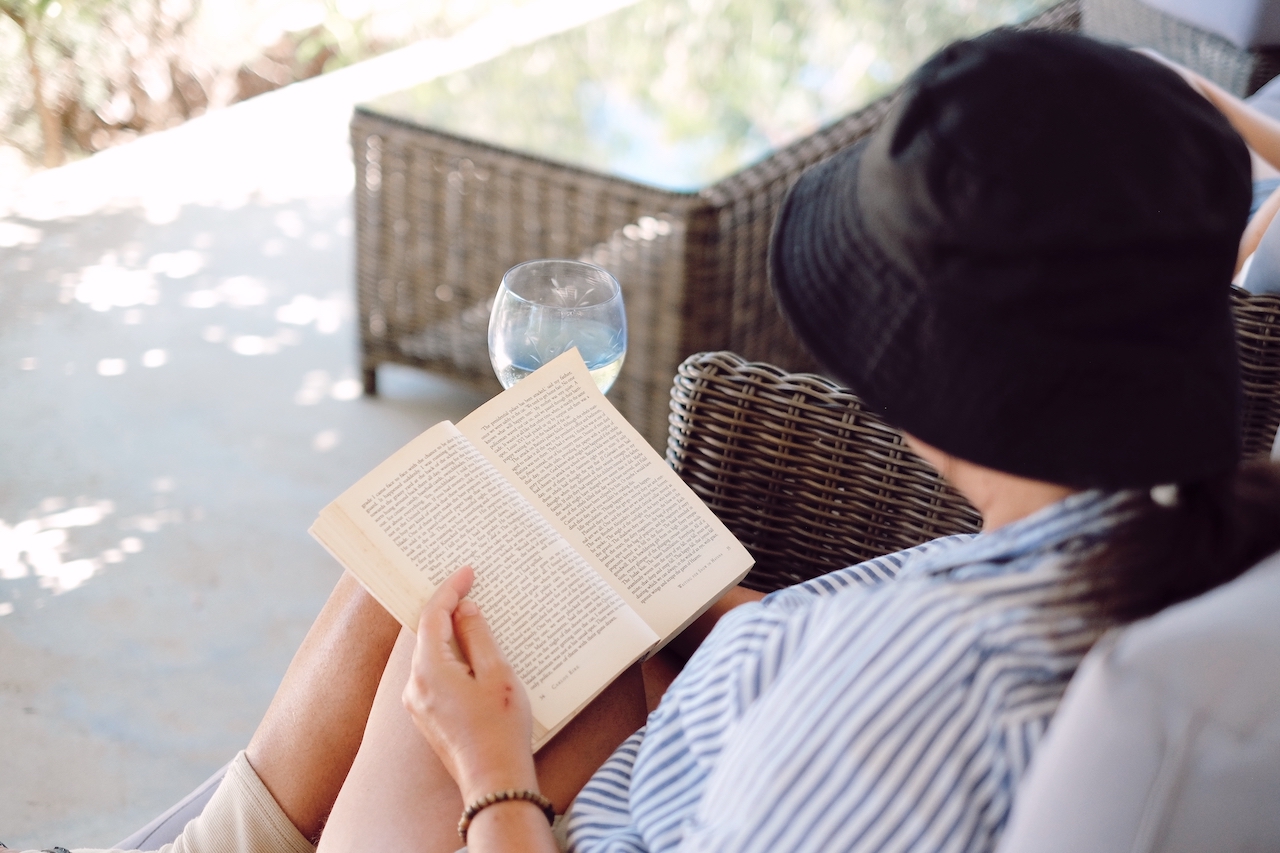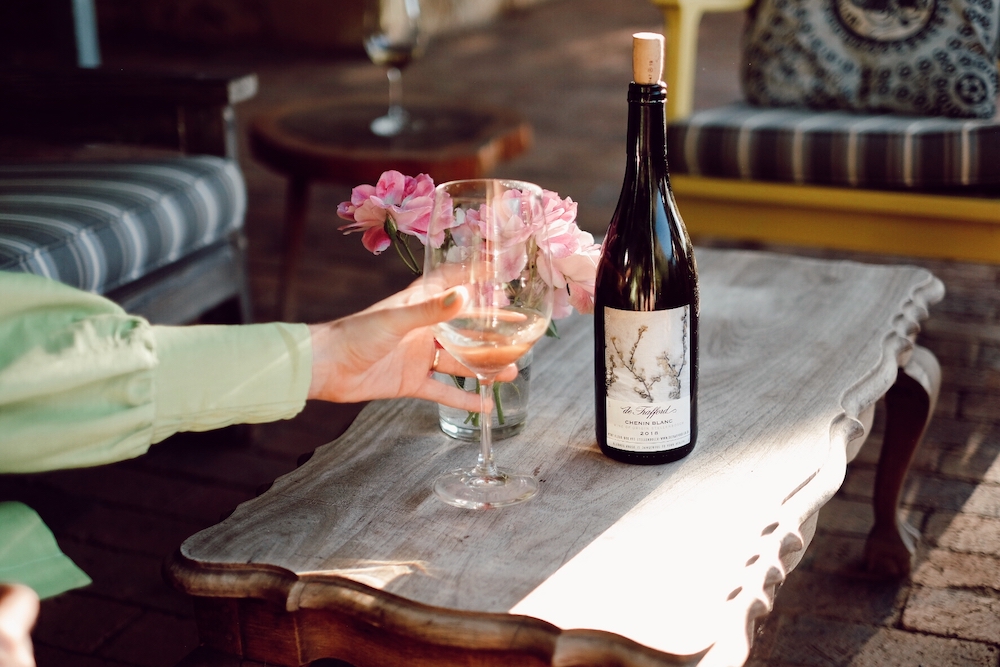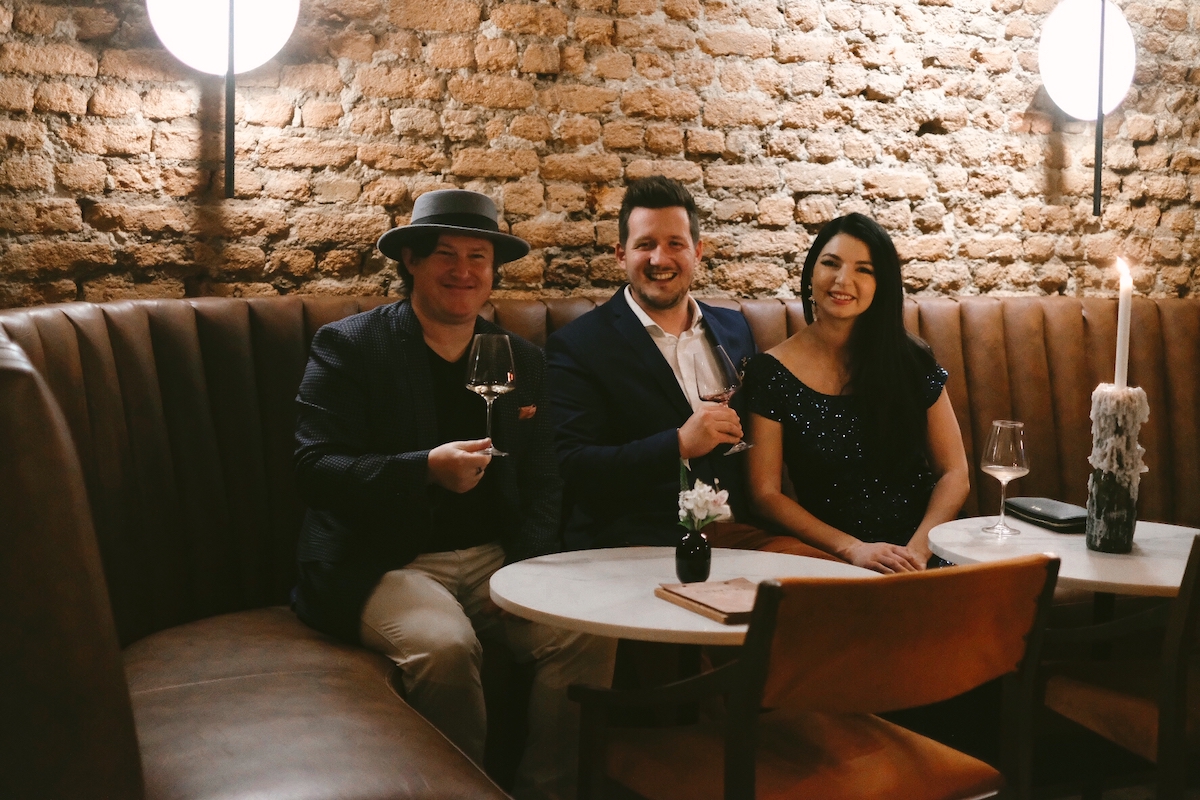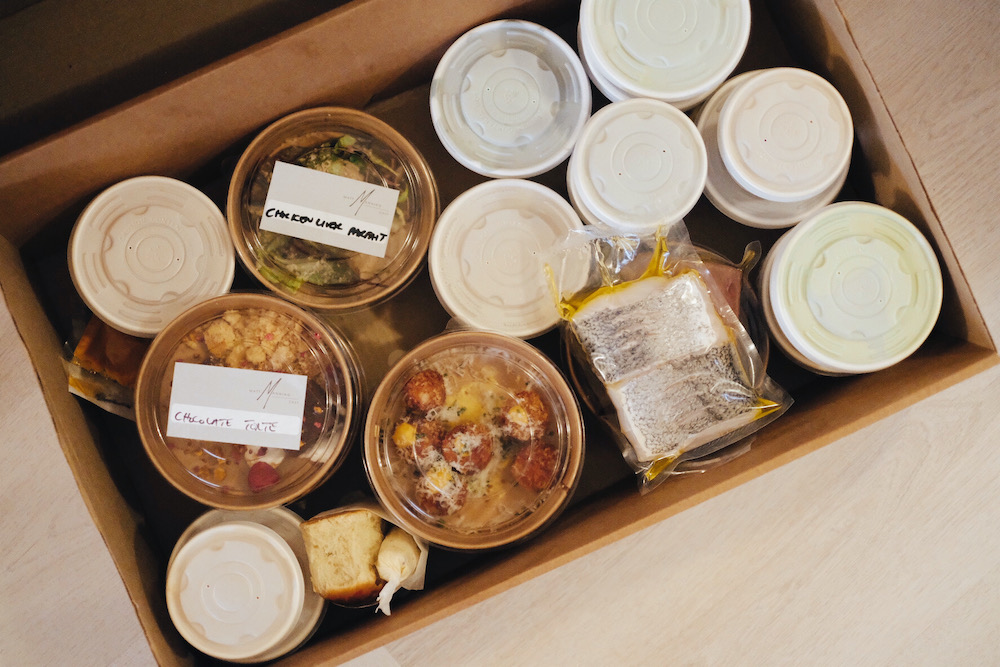The moment you walk through the doors of Delheim, you feel that you’re coming home.
And that isn’t all that surprising. Bought in 1938 as a retirement home for long-time owner Mr. Hans Otto Hoheisen and his wife Deli, the building was nicknamed Delheim, meaning Deli’s home.
During their residence, the house was converted into one of the first wine farms to have a tasting room and serving restaurant in South Africa. Untouched since the 1980s, the exposed facebrick walls and water-wise succulent garden have welcomed those from near and far with an entirely unpretentious atmosphere. It’s a very comfortable space, with Jack Russells greeting you at your table – sentries on standby for any bits of fallen food.
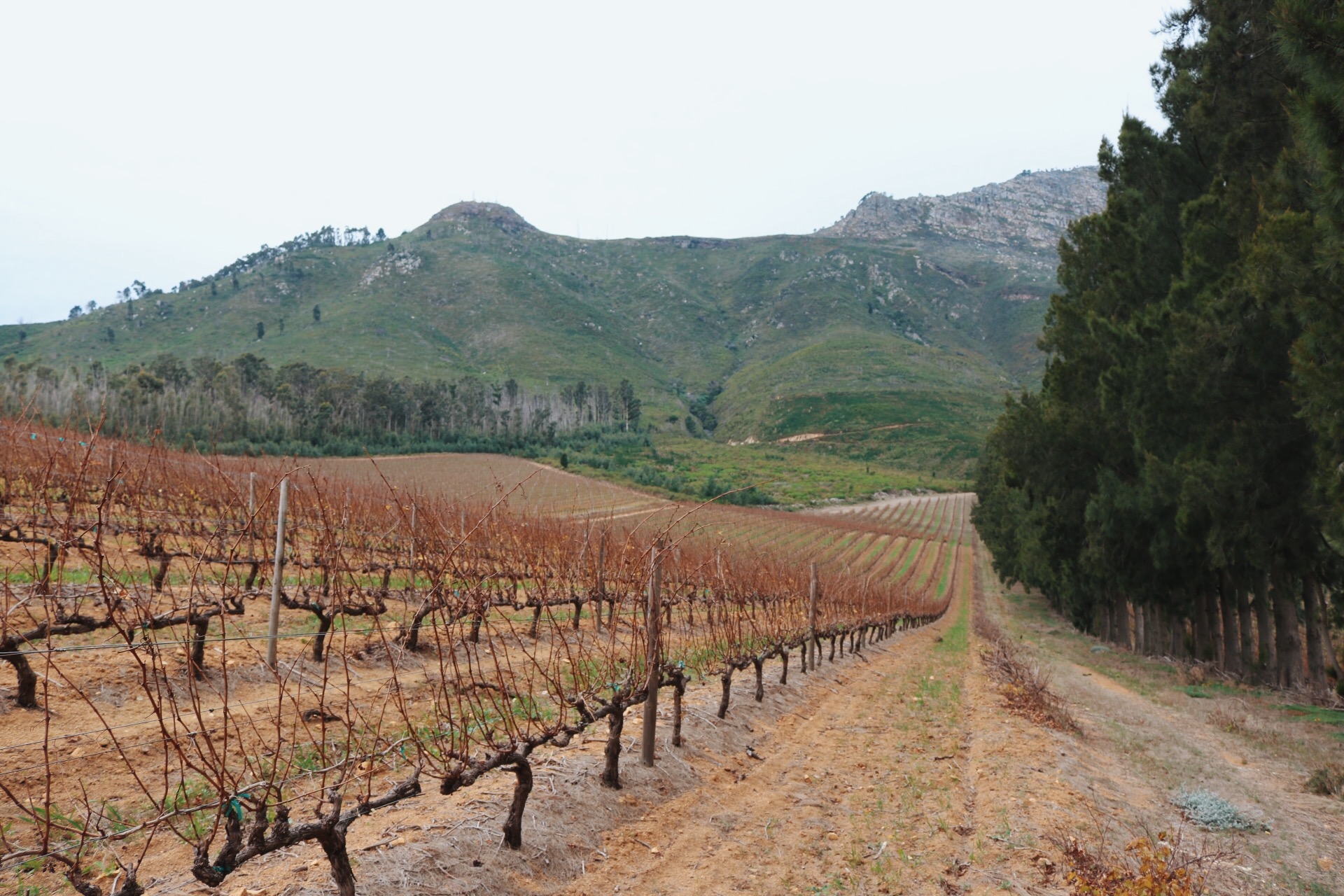
Keeping Up With The Times
Despite how nostalgic the space might be at Delheim, the team are ensuring to keep up with the times. On a rainy Tuesday morning in June, I met with Delheim Winemaker Roelof Lotriet and Marketing Manager Danica van Zyl, to learn exactly what they’ve been working on.
Roelof only started his position as winemaker at Delheim a year ago. “What attracted me to the estate was the strong link to family. I’ve worked on a lot of family estates, particularly during my time in France, and it’s one of the most important things. In my eyes, when you buy a bottle of Delheim’s Grand Reserve, you’re not just buying a good bottle of wine. You’re buying history. You can’t put a price on that value,” he explains.
At the moment, brother and sister Victor Sperling and Nora Sperling-Thiel are running the farm. In fact, Nora resides in the family home directly above the cellar tasting room, and the farm restaurant terrace is basically her stoep. According to Danica, the two are a great team: “There’s no room for sibling rivalry. It’s impressive. The two of them carry so much weight and respect. They really are the brand.”
With regards to the Delheim brand, in his short time, Roelof has already experimented with some new cultivars and wine styles, while carefully maintaining the DNA of Delheim. The team have just planted drought-resistant Tempranillo. “Everything you do now – it’s a projection for the future. We’re not sticking to an attitude of ‘we’ve always done it this way and that’s how it will always have to be’. No. We’re open to changing things,” says Roelof.
With this in mind, perhaps one of the most notable changes since Roelof joined the team is that all his wines for the 2019 vintage could potentially be made in a vegan-friendly way, keeping quality front of mind…
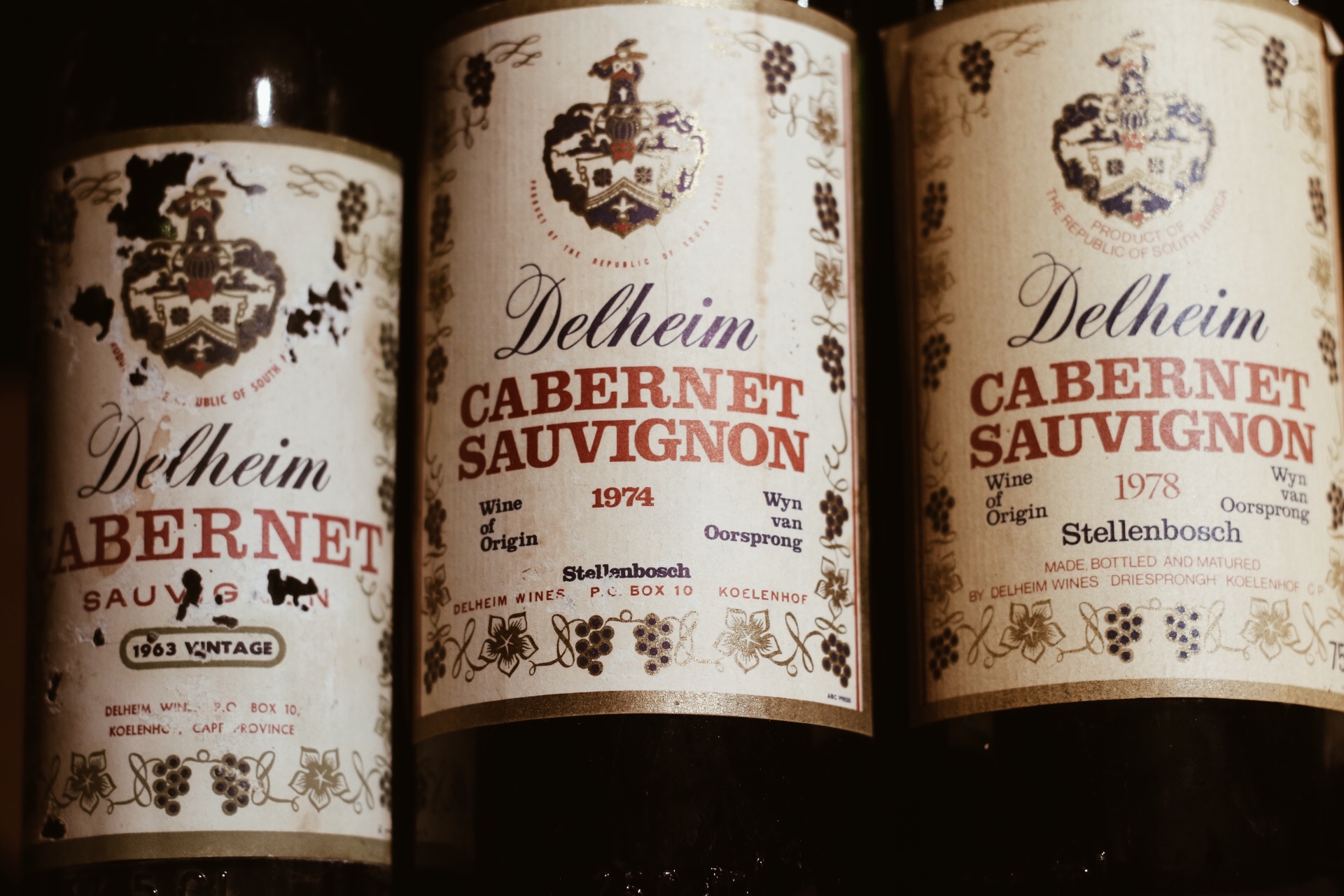
Understanding Vegan Wine
At this point, let’s just caveat this article to say that even as someone in the wine industry, my personal understanding of vegan wine was limited. I’ll admit that I had the following two misperceptions:
1) Vegan wine is lower in quality than other wine
2) Vegan wine has to be made differently to ‘normal’ wine
As I found out, that’s completely incorrect. Let’s begin by asking the question: How do you make a vegan wine?
In case you don’t know, animal by-products derived from milk (casein), eggs (albumen), fish (isinglass) and even gelatin are often used in one of the final parts of the winemaking process to fine and clarify the wine before it is bottled. Whether you knew this or not, this limits the number of wines available to vegans and vegetarians. Delheim has however only used a type of clay called Bentonite and a plant-derived protein in their winemaking processes.
“In 2019, I don’t have a need to use any animal by-product fining agents as I have alternatives to make wine without sacrificing quality at all. In fact, to some degree, you could argue that it actually makes the wine even better. Yes, it might cost a little bit more but it’s adding to the overall quality and the production process is exactly the same,” explains Roelof.
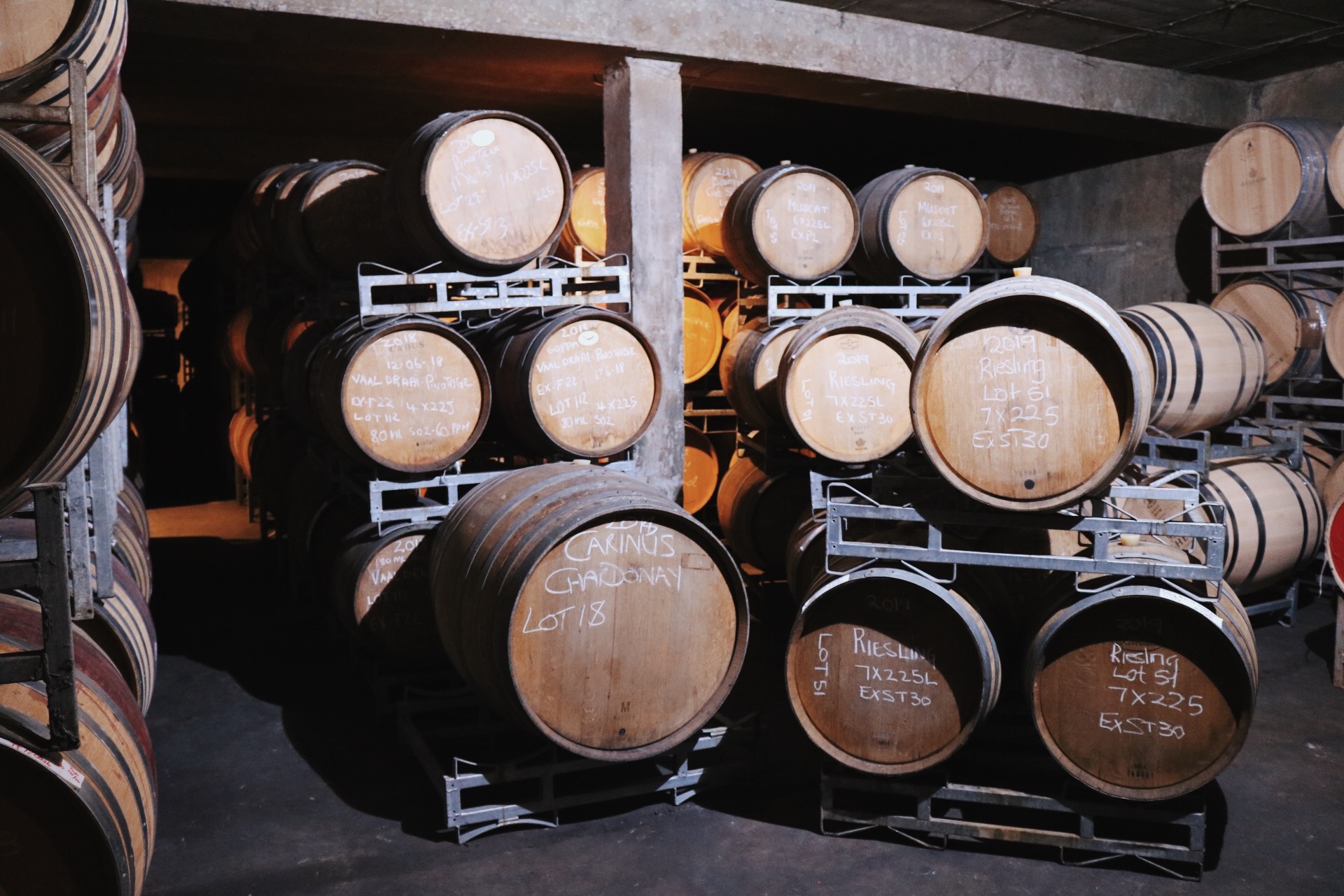
La Lutte Raisonnée
At present, and perhaps most curiously, there is no current wine industry certification for vegan wine. Organic, yes – but not vegan. Recently, I came across the French term ‘la lutte raisonnée’ from winemaker David Trafford of Sijnn and De Trafford Wines, who told me that it means ‘the reasoned struggle’. Growers who practice this kind of viticulture (like David) claim to use chemicals less often and less aggressively than conventional growers but that the only thing to stop a reasoned grower from farming conventionally is his conscience. In this era of mindfulness and self-awareness, the concept is really about being organic-mindful more than anything else.This philosophy seems particularly applicable for vegan winemaking.
“Vegan wine is self-regulated. It relates to a bigger commitment to farming as naturally and organically as possible,” shares Roelof. Adding to this, Danica states: “When we started communicating about our vegan wines, someone asked about why we were making this a talking point as there are already other wine farms around who also make vegan wines. For us, the goal was to communicate this fact. We were so surprised by the fact that consumers don’t know – so we wanted to encourage awareness and education.”
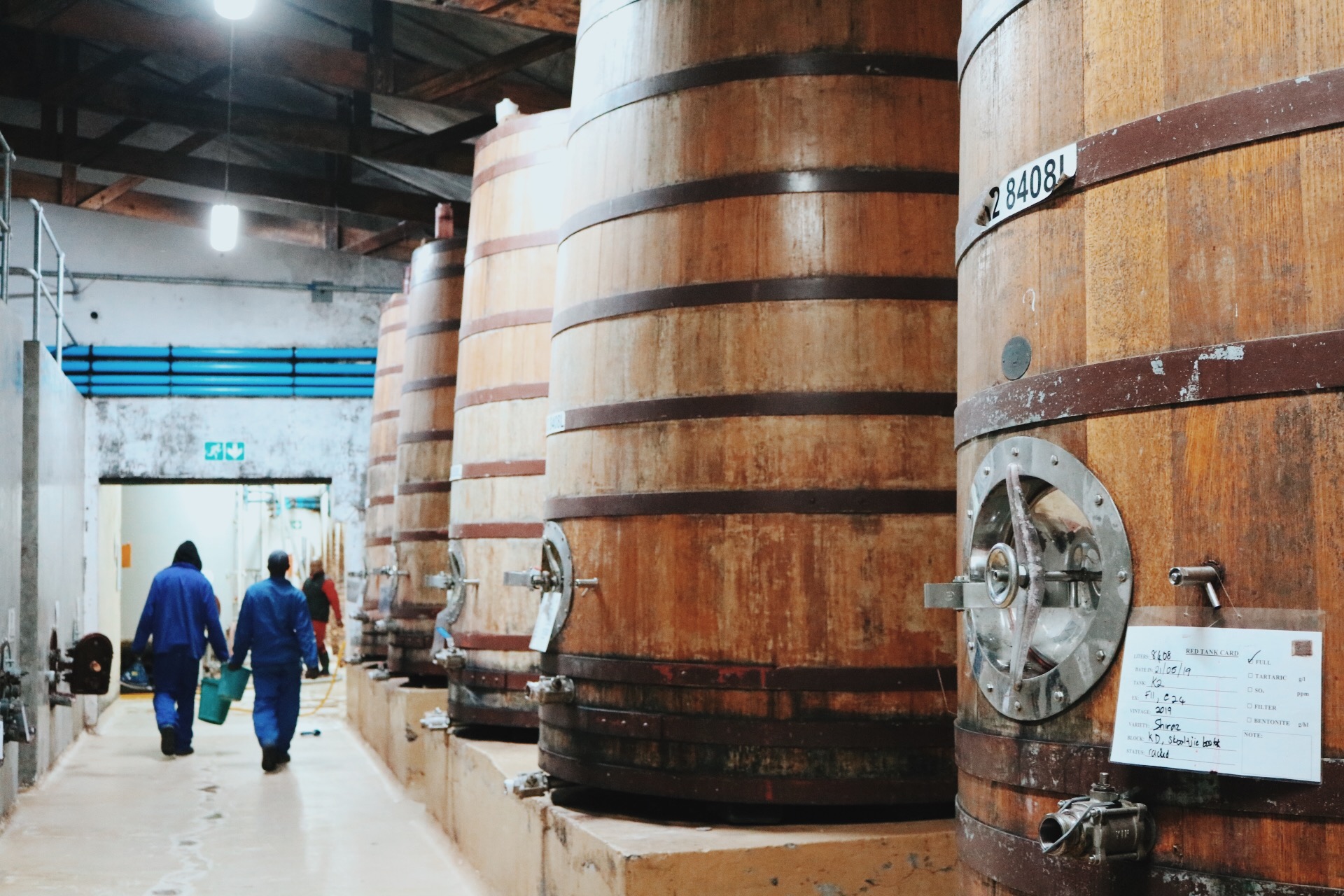
Vegan Wine: A By-Product of Quality
As it turns out, and what surprised me most to learn, Roelof, like the majority of winemakers, doesn’t make a vegan wine just for the sake of it. It isn’t aimed at a market demand (although this does help), but rather a by-product in the pursuit of making the highest quality wines possible.
Roelof adds: “As soon as you start making wine for vegan purposes, then you are using it for the wrong tools. What happens when everyone else catches up? It doesn’t make sense and it’s not the main objective. Vegan wine is a mindset. What’s great is that vegan wines have been around for decades, and while there’s absolutely no reason to think of it tasting or being different, it’s finally become a talking point.”
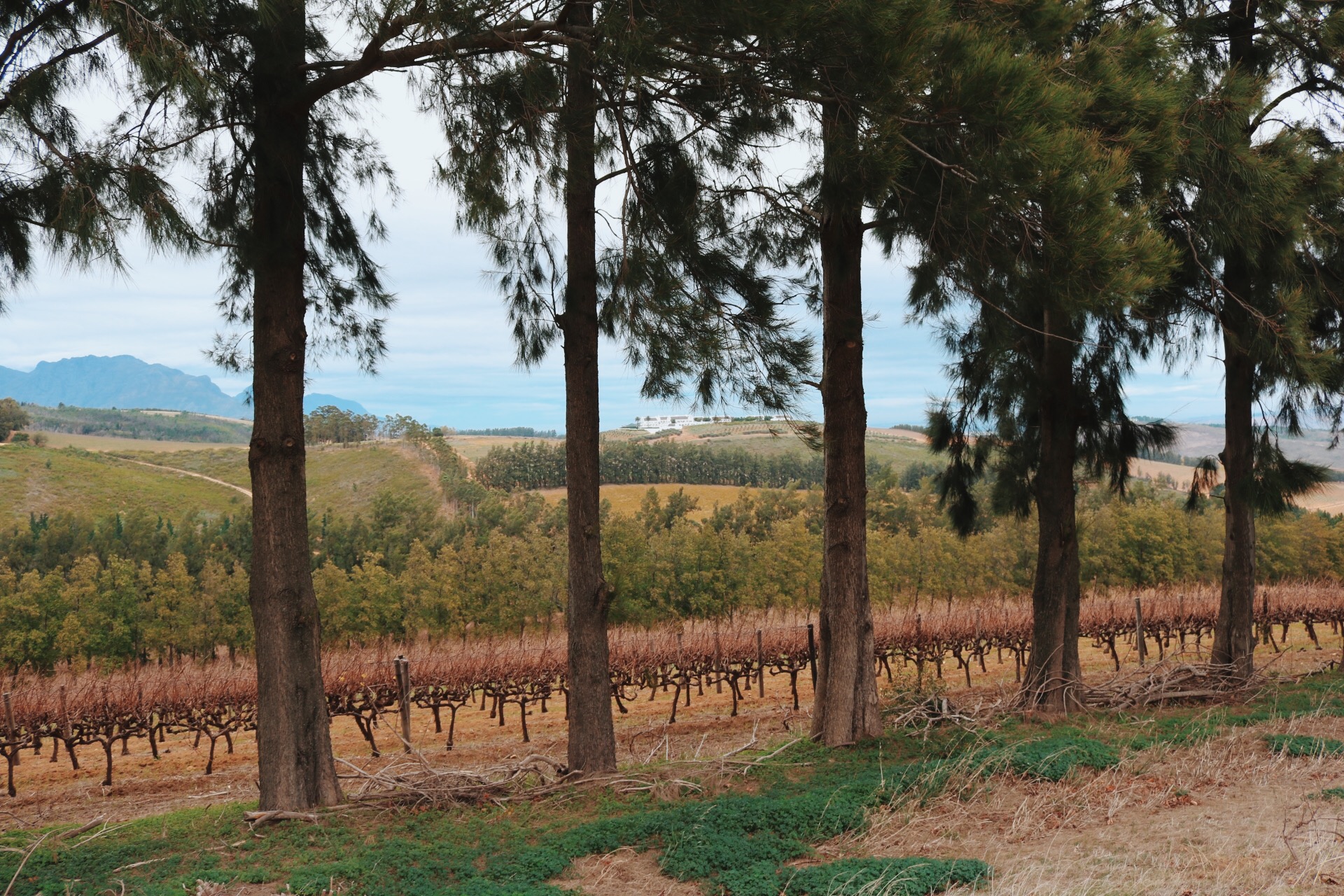
The Bigger Picture
During our discussion, as the rain pitter-patters on the roof, I can’t help but look outside through the large framed windows to the valley outside. The Delheim garden is beautifully bushy and lush, filled with succulents, fynbos and rows of tall trees growing up the steep mountainside. With this amount of abundant nature around, it should come as little surprise that Delheim is a World Wildlife Fund (WWF) Champion and the founding member of the Greater Simonsberg Conservancy, a non-profit and public benefit organization with the aim of supporting its members in their conservation efforts. This focus on sustainability and social responsibility has been pushed from the start by owners Victor and Nora, who are passionate about conserving the land. “We’ve been farming this land for many years and we understand how important it is to put back what you take out. We owe it to the land and to the wine industry to cherish our environment,” states Nora.
Known as an eco-champion, the Delheim team have a lot to keep busy with. For winemaker Roelof, it all starts in the vineyards.
“We go to a lot of effort. We have an excellent wastewater system and are removing alien vegetation to leave room for natural corridors. The value here is evident – take for example mealybugs. Mealybugs are the most important vector of leafroll viruses. But our farm doesn’t suffer from them, because we have left enough vegetation to allow for a natural eco-system for predators of the mealybug to survive. If you can find an alternative solution and maintain it – then do it. “.
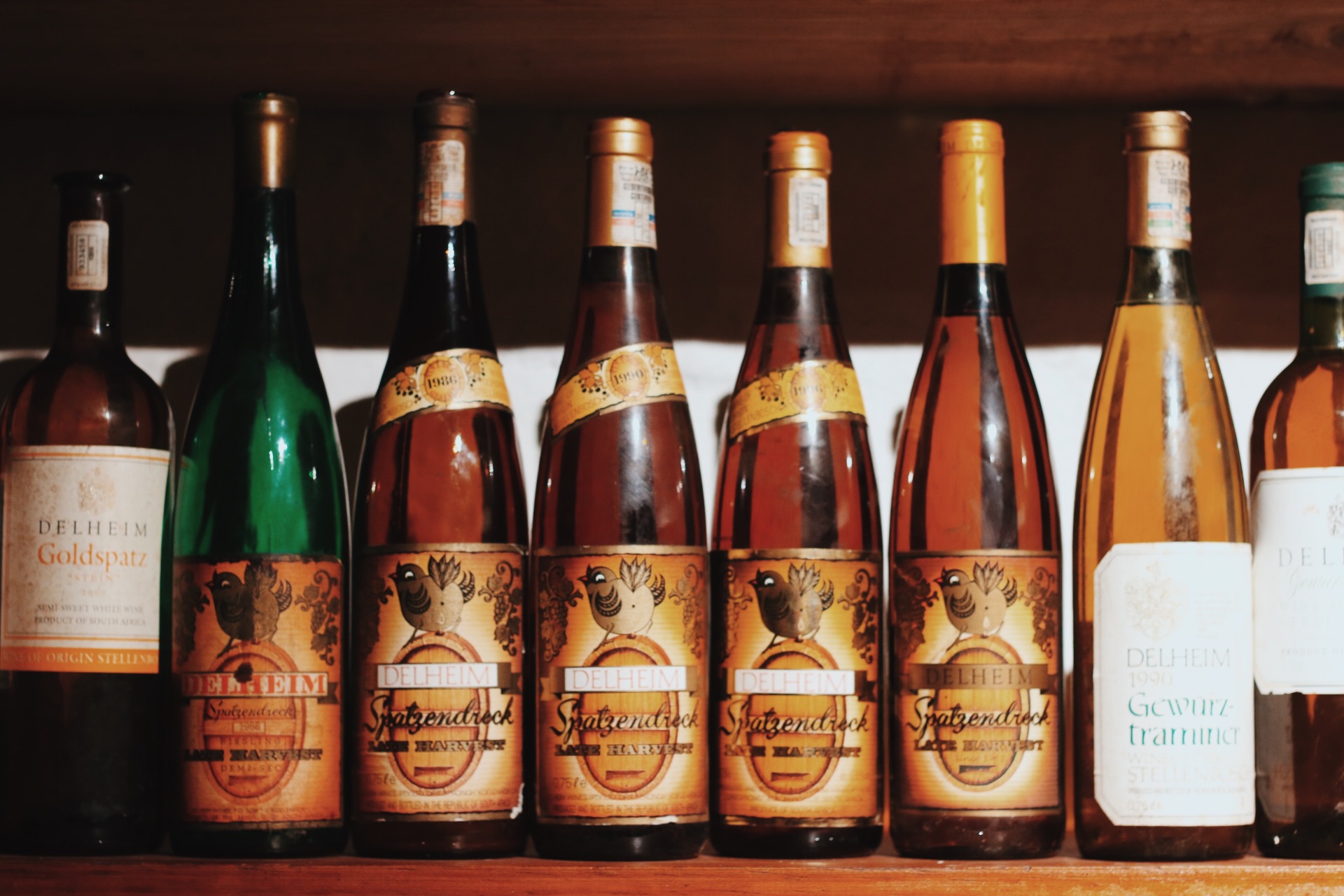
An Inclusive Community
Just as their wine farm feels like you’re stepping into your friend’s backyard, Delheim’s winemaking goal seems to be as broad-reaching as possible.
“It’s important to note that by making vegan-friendly wine, we’re not taking away from our non-vegan market. It’s actually an added value. In fact, it could make the wine that bit more accessible. After all, where the flexible majority of the market is 80%, 20% is your stubborn minority. Vegans fall into this 20%. And they create a demand in the market. That small 20% has created this whole shift because they demand transparency in what they consume. And so, we’re focusing on being as inclusive as possible,” ends Danica.
I can’t argue with that. After all, the wine industry does have a bad rep for being exclusive and this attitude is often why people opt for a beer instead of a complicated Chateau-something that requires background, context and food pairing capabilities.
What Delheim has done and continues to do well is to focus on inclusivity. All visitors are welcome. That is evident with their cosy and modest tasting room, where they aim to speak to the largest audience possible and in their decision to include the environment in the whole experience. Yet, what makes them successful is that they aren’t simply responding to market demand. Instead, they continue to be who they have always been, while actively making themselves relevant through what they opt to communicate.
It’s a mindset.
